Before the silver screen took the world by storm, St. Augustine locals and visitors found entertainment in the performing arts.
Storytelling has always been a crucial aspect of culture and its impact is enhanced through musical and theatrical performance. Menendez even brought open-air religious performers to impress the Natives. The first official record of a stage drama appears to have happened in 1783.
The East Florida Gazette promoted two benefit shows at the State House theatre: Beaux Stratagem and A Miss in Her Teens performed Monday night March 31, 1783. In the 1860s, theatricals often took place at an auditorium in the Post Office, now the Governor’s House Cultural Center.
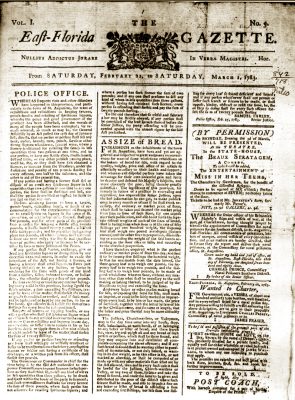 East Florida Gazette, 1783. Benefit shows advertised shown on the right.
East Florida Gazette, 1783. Benefit shows advertised shown on the right.
Bartolo Genovar is from one of the oldest families in St. Augustine with roots that go back to the city’s founding in 1565. In 1866, he operated a grocery store on Charlotte Street and others on the same street manufacturing and selling orange wines, rumored to be the best of its class.
He believed the city needed an opera house, so he turned the second floor of his Charlotte/Cuna Street location into the Genovar Opera House as a venue for lectures and entertainment. The two-story wooden structure was lost to a fire in 1914 with several other buildings in the city. Another was rebuilt on St. George Street close to Treasury Street and was designed to host traveling companies, providing full-stage equipment and folding seats.
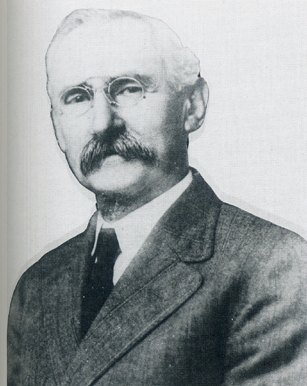 Bartolo Genovar
Bartolo Genovar
Today, the site is marked with signage recognizing the celebrated orator, Frederick Douglass, and his speech regarding abolitionism to 700 St. Augustine residents in the opera house on April 7, 1889. Part of the building operates as Prohibition Kitchen, a speakeasy-themed gastropub offering generous portions and live music.
Jefferson Theatre
Built in 1907, the Jefferson Theatre was named for brothers Joseph and William Jefferson, who were renowned entertainers of the day. Located on the corner of Cathedral Place and Cordova Street, the theatre began as an opera and vaudeville house, eventually transitioning to silent film screenings by the 1920s. Paramount Pictures operated the theatre in the 1940s until it was demolished in the 1950s. The St. Augustine National Bank built a new structure here and today it functions as a Bank of America.
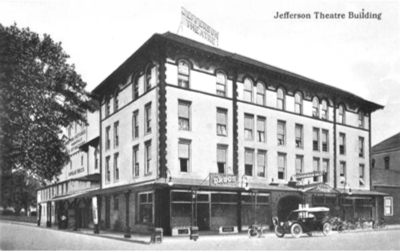 Jefferson Theatre
Jefferson Theatre
Notable Performers
Louise Homer
Louise Beatty Homer was a world-renowned opera singer whose active international career in concert halls and opera houses spans from 1895 until her retirement in 1932.
Starting off as a vaudeville performer in New England, she made her professional debut playing Léonore in Donizetti’s La Favorita in Vichy, France in 1898 and performed at the Royal Opera House in London the following year.
She made her American debut in 1900 when she was a member of the Metropolitan Opera from 1900-1919 and again between 1927-1929. She sang here for nineteen seasons, often opposite the acclaimed Enrico Caruso, Geraldine Farrar, and Ernestine Schumann-Heink.
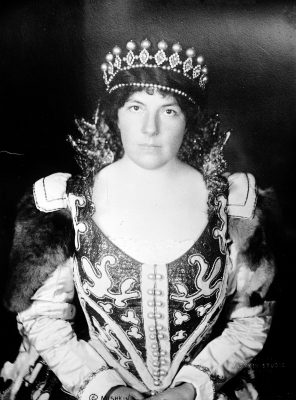 Louise Homer
Louise Homer
Louise’s resume as a diva is extensive and impressive touting roles such as the witch in the premiere of Humperdinck’s Königskinder, Suzuki in Puccini’s Madama Butterfly, plus several solo performances like Verdi’s Requiem. Between 1903-1929, Louise recorded arias and gospel hymns on the Victor Talking Machine Company and is considered one of the first great classical recording artists.
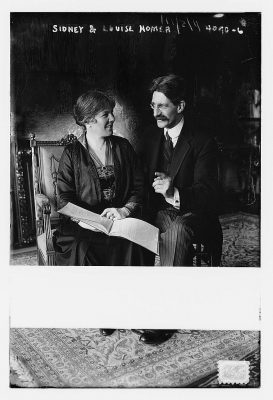 Louise and Sidney Homer
Louise and Sidney Homer
Louise and her husband, American composer Sidney, moved to St. Augustine in the Nelmar area in the 1930s. After many health complications, doctors suggested a warmer climate would benefit Sidney’s respiratory system. They moved to Palm Beach, Florida around 1928, then to 30 Nelmar Avenue in St. Augustine shortly after.
During his year and a half recovery, he wrote My Wife and I and published the book via MacMillan in 1939. Louise offered singing lessons out of their home while he recovered and she retired from her performing career.
The Homers moved to Orlando two winters later where Louise would teach vocal lessons at Rollins College until her death in 1947.
Curtis Tucker
Conductor and composer Curtis Tucker is Artistic Director for First Coast Opera and serves as Adjunct Faculty at the Florida School of the Arts. He formerly served as General Director of Opera Saratoga in New York, Sorg Opera in Ohio, and Whitewater Opera in Indiana.
 Curtis Tucker
Curtis Tucker
Curtis’s original compositions reflect his life-long commitment to vocal music. He has written three one-act operas on librettos by his frequent collaborator Nelson Sheeley. The Stranger’s Tale premiered at Sorg Opera in 2005. The Trial of B. B. Wolf premiered in New York in 2011 and has twice been performed by First Coast Opera.
His most recent chamber opera, Penelope Ann’s Revenge, written as a sequel to Arthur Sullivan’s Cox and Box, will premiere with a full co-production by A Classic Theatre and First Coast Opera in May 2021.
His songs and choral works have been performed throughout the United States. His projects have received grants from the National Endowment for the Arts and state arts councils in Massachusetts, Ohio, Florida, and California.
He has been a Guest Conductor for Cincinnati Opera, Syracuse Opera, Mobile Opera, Wichita Grand Opera, Fresno Grand Opera, University of North Florida Opera Theater, Alabama School of the Arts at the University of Mobile, and others. In 2011, he paced the world premiere of Michael Ching’s A Midsummer Night’s Dream opera a cappella at Opera Memphis, as well as a studio recording of the work released by Albany Records.
Ring in the New Year with a fully-staged opera and live orchestra.
First Coast Opera will present Johann Strauss Jr.’s classic 19th Century Viennese operetta Die Fledermaus (The Bat) at Flagler College’s Lewis Auditorium on Saturday, December 31st and Sunday, January 1st.
Based on a popular French vaudeville comedy, this high-spirited operetta premiered to Viennese audiences in 1874 featuring numerous waltz and polka themes. “Die Fledermaus” follows the frivolity and festivities as Eisenstein evades jail for one night to attend Prince Orlofsky’s lavish New Year’s Eve party.
Tickets range from $50-$70 for December 31st at 7 PM and January 1st at 3 PM. Student tickets are $20. Both performances include complimentary champagne during intermission.